Airegin by Sonny Rollins – Jazz Play Along, sheet music download
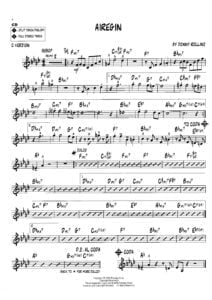
Sonny Rollins BIO (from the official web page)
WALTER THEODORE ROLLINS was born on September 7, 1930 in New York City. He grew up in Harlem not far from the Savoy Ballroom, the Apollo Theatre, and the doorstep of his idol, Coleman Hawkins. After early discovery of Fats Waller and Louis Armstrong, he started out on alto saxophone, inspired by Louis Jordan. At the age of sixteen, he switched to tenor, trying to emulate Hawkins. He also fell under the spell of the musical revolution that surrounded him, bebop.
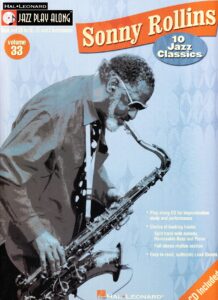
He began to follow Charlie Parker, and soon came under the wing of Thelonious Monk, who became his musical mentor and guru. When he was living in Sugar Hill, his neighborhood musical peers included Jackie McLean, Kenny Drew, and Art Taylor, but it was young Sonny who was first out of the pack, working and recording with Babs Gonzales, J.J. Johnson, Bud Powell, and Miles Davis before he turned twenty.
Best Sheet Music download from our Library.
“Of course, these people are there to be called on because I think I represent them in a way,” Rollins has said of his peers and mentors. “They’re not here now so I feel like I’m sort of representing all of them, all of the guys. Remember, I’m one of the last guys left, as I’m constantly being told, so I feel a holy obligation sometimes to evoke these people.”
In the early fifties, he established a reputation first among musicians, then the public, as the most brash and creative young tenor on the scene, through his work with Miles, Monk, and the MJQ.
Miles Davis was an early Sonny Rollins fan and in his autobiography wrote that he “began to hang out with Sonny Rollins and his Sugar Hill Harlem crowd… anyway, Sonny had a big reputation among a lot of the younger musicians in Harlem. People loved Sonny Rollins up in Harlem and everywhere else.
He was a legend, almost a god, to a lot of the younger musicians. Some thought he was playing the saxophone on the level of Bird. I know one thing–he was close. He was an aggressive, innovative player who always had fresh musical ideas. I loved him back then as a player, and he could also write his ass off…”
Please, subscribe to our Library.
If you are already a subscriber, please, check our NEW SCORES’ page every month for new sheet music. THANK YOU!
Sonny moved to Chicago for a few years to remove himself from elements of negativity around the jazz scene. He reemerged at the end of 1955 as a member of the Clifford Brown-Max Roach Quintet, with an even more authoritative presence. His trademarks became a caustic, often humorous style of melodic invention, a command of everything from the most arcane ballads to calypsos, and an overriding logic in his playing that found him hailed as models of thematic improvisation.
It was during this time that Sonny acquired a nickname, “Newk.” As Miles Davis explains in his autobiography: “Sonny had just got back from playing a gig out in Chicago. He knew Bird, and Bird really liked Sonny, or ‘Newk’ as we called him, because he looked like the Brooklyn Dodgers’ pitcher Don Newcombe.
One day, Sonny and I were in a cab… when the white cabdriver turned around and looked at Sonny and said, ‘Damn, you’re Don Newcombe!’ Man, the guy was totally excited. I was amazed, because I hadn’t thought about it before. We just put that cabdriver on something terrible. Sonny started talking about what kind of pitches he was going to throw Stan Musial, the great hitter for the St. Louis Cardinals, that evening…”
In 1956, Sonny began recording the first of a series of landmark recordings issued under his own name: “Valse Hot” introduced the practice, now common, of playing bop in 3/4 meter; “St. Thomas” initiated his explorations of calypso patterns; and “Blue 7” was hailed by Gunther Schuller as demonstrating a new manner of “thematic improvisation,” in which the soloist develops motifs extracted from his theme.
Way Out West (1957), Rollins’s first album using a trio of saxophone, double bass, and drums, offered a solution to his longstanding difficulties with incompatible pianists, and exemplified his witty ability to improvise on hackneyed material (“Wagon Wheels,” “I’m an Old Cowhand”).
“It Could Happen to You” (also 1957) was the first in a long series of unaccompanied solo recordings, and The Freedom Suite (1958) foreshadowed the political stances taken in jazz in the 1960s. During the years 1956 to 1958 Rollins was widely regarded as the most talented and innovative tenor saxophonist in jazz.
Rollins’s first examples of the unaccompanied solo playing that would become a specialty also appeared in this period; yet the perpetually dissatisfied saxophonist questioned the acclaim his music was attracting, and between 1959 and late ‘61 withdrew from public performance.
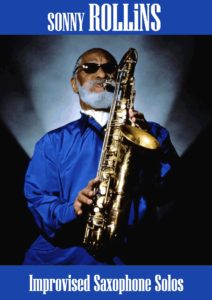
Sonny remembers that he took his leave of absence from the scene because “I was getting very famous at the time and I felt I needed to brush up on various aspects of my craft. I felt I was getting too much, too soon, so I said, wait a minute, I’m going to do it my way. I wasn’t going to let people push me out there, so I could fall down. I wanted to get myself together, on my own. I used to practice on the Bridge, the Williamsburg Bridge because I was living on the Lower East Side at the time.”
When he returned to action in late ‘61, his first recording was appropriately titled The Bridge. By the mid 60s, his live sets became grand, marathon stream-of-consciousness solos where he would call forth melodies from his encyclopedic knowledge of popular songs, including startling segues and sometimes barely visiting one theme before surging into dazzling variations upon the next. Rollins was brilliant, yet restless.
The period between 1962 and ‘66 saw him returning to action and striking productive relationships with Jim Hall, Don Cherry, Paul Bley, and his idol Hawkins, yet he grew dissatisfied with the music business once again and started yet another sabbatical in ‘66.
“I was getting into Eastern religions,” he remembers. “I’ve always been my own man. I’ve always done, tried to do, what I wanted to do for myself. So these are things I wanted to do. I wanted to go on the Bridge. I wanted to get into religion. But also, the jazz music business is always bad. It’s never good. So that led me to stop playing in public for a while, again.
During the second sabbatical, I worked in Japan a little, and went to India after that and spent a lot of time in a monastery. I resurfaced in the early 70s, and made my first record in ‘72. I took some time off to get myself together, and I think it’s a good thing for anybody to do.”
In 1972, with the encouragement and support of his wife Lucille, who had become his business manager, Rollins returned to performing and recording, signing with Milestone and releasing Next Album. (Working at first with Orrin Keepnews, Sonny was by the early 80s producing his own Milestone sessions with Lucille.)
His lengthy association with the Berkeley-based label produced two dozen albums in various settings—from his working groups to all-star ensembles (Tommy Flanagan, Jack DeJohnette, Stanley Clarke, Tony Williams); from a solo recital to tour recordings with the Milestone Jazzstars (Ron Carter, McCoy Tyner); in the studio and on the concert stage (Montreux, San Francisco, New York, Boston).
Sonny was also the subject of a mid 80s documentary by Robert Mugge entitled Saxophone Colossus; part of its soundtrack is available as Sonny Rollins Plays G-Man.
He won his first performance Grammy for This Is What I Do (2000), and his second for 2004’s Without a Song (The 9/11 Concert), in the Best Jazz Instrumental Solo category (for “Why Was I Born”). In addition, Sonny received a Lifetime Achievement Award from the National Academy of Recording Arts and Sciences in 2004.
In June 2006, Rollins was inducted into the Academy of Achievement—and gave a solo performance—at the International Achievement Summit in Los Angeles. The event was hosted by George Lucas and Steven Spielberg and attended by world leaders as well as distinguished figures in the arts and sciences.
Rollins was awarded the Austrian Cross of Honor for Science and Art, First Class, in November 2009. The award is one of Austria’s highest honors, given to leading international figures for distinguished achievements. The only other American artists who have received this recognition are Frank Sinatra and Jessye Norman.
In 2010 on the eve of his 80th birthday, Sonny Rollins became one of 229 leaders in the sciences, social sciences, humanities, arts, business, and public affairs who have been elected members of the American Academy of Arts and Sciences. A center for independent policy research, the Academy is among the nation’s oldest and most prestigious honorary societies and celebrates the 241st anniversary of its founding this year.
In August 2010, Rollins was named the Edward MacDowell Medalist, the first jazz composer to be so honored. The Medal has been awarded annually since 1960 to an individual who has made an outstanding contribution to his or her field.
Yet another major award was bestowed on Rollins on March 2, 2011, when he received the Medal of Arts from President Barack Obama in a White House ceremony. Rollins accepted the award, the nation’s highest honor for artistic excellence, “on behalf of the gods of our music.”
Since 2006, Rollins has been releasing his music on his own label, Doxy Records. The first Doxy album was Sonny, Please, Rollins’s first studio recording since This Is What I Do. That was followed by the acclaimed Road Shows, vol. 1 (2008), the first in a planned series of recordings from Rollins’s audio archives.
Rollins released Road Shows, vol. 2 in the fall of 2011. In addition to material recorded in Sapporo and Tokyo, Japan during an October 2010 tour, the recording contains several tracks from Sonny’s September 2010 80th birthday concert in New York—including the historic and electrifying encounter with Ornette Coleman.
On December 3, 2011 Sonny Rollins was one of five 2011 Kennedy Center honorees, alongside actress Meryl Streep, singer Barbara Cook, singer/songwriter Neil Diamond, and cellist Yo-Yo Ma. Rollins said of the honor, “I am deeply appreciative of this great honor. In honoring me, the Kennedy Center honors jazz, America’s classical music. For that, I am very grateful.”
Road Shows, vol. 3, released by Doxy/OKeh/Sony in 2014, drew its six tracks from concerts recorded between 2001 and 2012 in Sitama, Japan; Toulouse, Marseille, and Marciac, France; and St. Louis, Missouri. “Patanjali,” a recent-vintage Rollins composition, was given its debut recording on the disc.
Rollins followed this up in 2016 with Holding the Stage: Road Shows, vol. 4 (Doxy/OKeh/Sony). The album’s seven tracks encompass some 33 years (1979-2012) and include a previously unreleased 23-minute medley (and concert closer) from his September 15, 2001 Boston performance, most of which had been immortalized in Rollins’s final Milestone album, Without a Song: The 9/11 Concert.
In 2017, the Schomburg Center in New York City acquired Rollins’s personal archive.
In late 2020, the saxophonist released Rollins in Holland, a 2-CD/3-LP deluxe set via Resonance Records. The collection of unheard live and studio trio recordings from Rollins’s 1967 Netherlands tour feature “take no prisoners” performances with bassist Ruud Jacobs and drummer Han Bennink.
Airegin (Jazz Standard)
“Airegin,” an up tempo minor composition, was inspired by a magazine photograph of Nigerian dancers that had impressed Rollins, who said, “So the next song that I wrote I dedicated to the dancers, and I titled it ‘Airegin,’ which is Nigeria spelled backwards.”
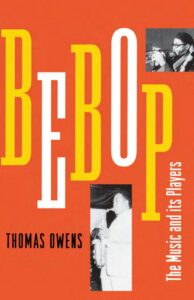
Jon Hendricks wrote a lyric for “Airegin” which was performed by the vocal group Lambert, Hendricks & Ross in 1959 and recorded in 1985 by the Manhattan Transfer with Hendricks scatting Rollins’ solo for the Transfer’s award-winning Vocalese album. The complex lyric paints a picture of Nigeria’s history from its innocent beginnings in the age of dinosaurs through the arrival of the white man and the influence of missionaries.
“Airegin,” a favorite of saxophonists, has been recorded by Dexter Gordon, Phil Woods, Stan Getz, Art Pepper, Don Braden, Michael Brecker, and Nick Brignola. But many other instrumentalists have recorded it as well: bassists David Friesen and Scott Colley, trumpeters Chet Baker and Claudio Roditi, vibraphonist Terry Gibbs, guitarists Wes Montgomery and Grant Green, pianists Tete Montoliu and Gonzalo Rubalcaba, and the Latin band of Tito Puente. Harmonica player Toots Thielemans used it as the title cut of his 1996 album.
Davis recorded a different version of “Airegin” in 1957 for his Cookin’ album, which featured his quintet of saxophonist John Coltrane, pianist Red Garland, bassist Paul Chambers, and drummer Philly Joe Jones.
Free sheet music download.
Sonny Rollins – Airegin
Airegin (RVG Remaster) · Miles Davis · Sonny Rollins · Horace Silver · Kenny Clarke · Percy Heath The Definitive Sonny Rollins On Prestige, Riverside, And Contemporary
Browse in the Library:
| Artist or Composer / Score name | Cover | List of Contents |
|---|---|---|
| Timbaland – Way I Are | ||
| Time (Inception) – Hans Zimmer – Solo Piano (Musescore File).mscz | ||
| Time is like a dream (Interlude OST) Georges Delerue | ||
| Time Travel Theme – Secret (Jay Chou) |
 |
|
| Timothy Brown – Daydreaming |
 |
|
| Timothy Brown – Lyric Expressions Solo Piano |
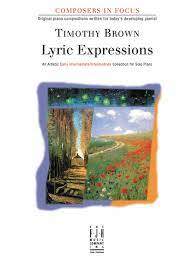 |
|
| Timothy Brown – Soliloquy |
 |
|
| Tina Arena – Burn | ||
| Tina Turner – I, Tina (Book) |
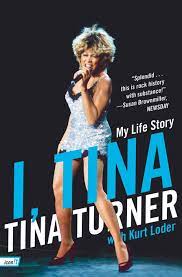 |
|
| Tina Turner – The Best Of Simply The Best Piano Vocal guitar Chords |
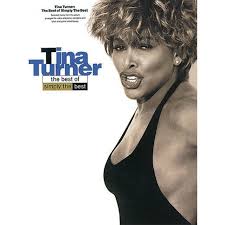 |
Tina Turner – The Best Of Simply The Best Piano Vocal guitar Chords – – 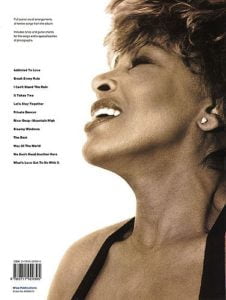 |
| Tina Turner – What’s Love Got To Do With It | Tina Turner – What’s Love Got To Do With It | |
| Tina Turner – What’s Love Got To Do With It.mscz | ||
| Tina Turner Goldeneye (James Bond frilm Theme) |
 |
|
| Titanic – My Heart Will Go On (James Horner) |
 |
|
| Titanic – James Horner Full songbook |
 |
Titanic – James Horner |
| Titanic Movie Theme – My Heart Will Go On – Piano Guitar Vocals | Titanic Movie Theme – My HeArt Will Go On – Piano Guitar Vocals | |
| To Be Pleasing You Jazz Piano Solo arr. sheet music |
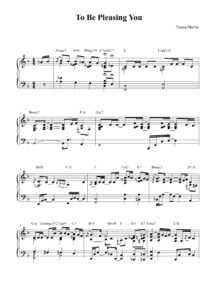 |
|
| To love you more (Celine Dion) | ||
| To Zanarkand Final Fantasy X |
 |
|
| To Zanarkand (Final Fantasy X) (Musescore File).mscz | ||
| TOCH, E. – La Melodía(Spanish) 1923 |
 |
|
| Tom Jobim Girl from Ipanema | Tom Jobim girl from ipanema | |
| Tom Jobim Agua de Beber | Tom Jobim Sheet Music – Agua de Beber | |
| Tom Jobim Desafinado | ||
| Tom Jobim Ligia | ||
| Tom Jobim Samba Verao | ||
| Tom Jobim songbook 1 Guitar (by Almir Chediak) |
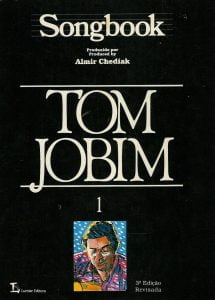 |
Tom Jobim songbook I (Guitar) |
| Tom Jobim songbook 2 Guitar (by Almir Chediak) |
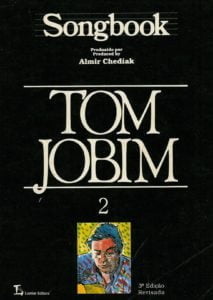 |
Tom Jobim songbook I (Guitar) |
| Tom Jobim songbook 3 Guitar (by Almir Chediak) |
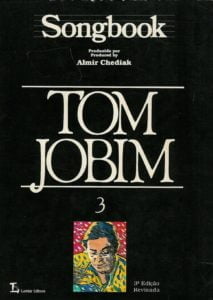 |
Tom Jobim songbook I (Guitar) |
| Tom Jobim Triste | ||
| Tom Jobim Vivo Sonhando | ||
| Tom Jones Greatest Hits |
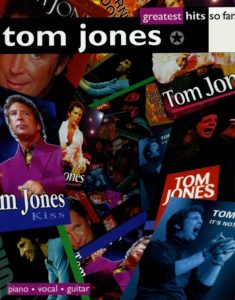 |
Tom Jones Greatest Hits |
| Tom Kolb – Chord Progressions for Guitar (with audio MP3) |
 |
Tom Kolb – Chord Progressions for Guitar (with audio MP3) |
| Tom Odell Another Love |
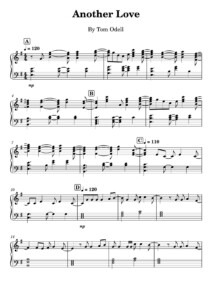 |
|
| Tom Petty Anthology Guitar Anthology Series with TABs |
 |
Anthology Tom Petty Guitar |
| Tom Petty Sheet Music Anthology – Tom Petty |
 |
Tom Petty Sheet Music Anthology – Tom Petty |
| Tom Petty, Best of (Songbook), The – Tom Petty sheet music |
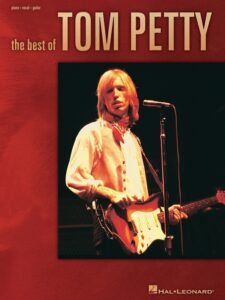 |
Tom Petty, Best of (Songbook), The – Tom Petty sheet music |
| Tom Turpin The Harlem Rag | Tom Turpin Harlem-Rag | |
| Tom Waits -Alice (entire album songbook) Piano-vocal-guitar |
 |
Tom Waits -Alice (entire album songbook) Piano-vocal-guitar |
| Tom Waits Anthology 29 Titres |
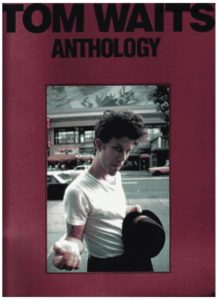 |
Tom Waits Anthology |
| Tom Waits Beautiful Maladies |
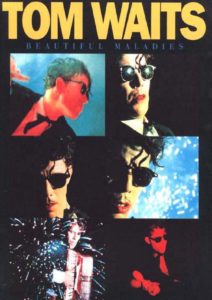 |
Tom Waits Beautiful Maladies |
| Tom Waits Blood Money |
 |
Tom Waits Blood Money |
| Tommy Emmanuel The Mystery Transcriptions Mel Bay Presents Guitar TAB |
 |
Tommy Emmanuel The Mystery Transcriptions Mel Bay Presents Guitar TAB |
| Tommy Flanagan – Moritat Mack The Knife Solo transcription | Tommy Flanagan – Moritat Mack The Knife Solo transcription | |
| Tommy Flanagan Wee Dot sheet music transcription |
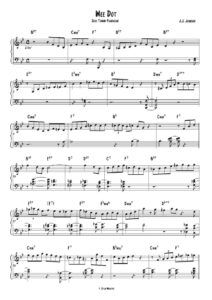 |
|
| Tommy Flint – Best Of Country Guitar Solos with audio MP3 with TABs |
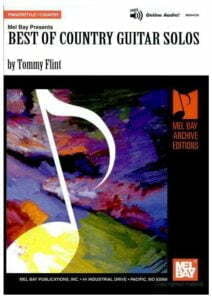 |
Tommy Flint – Best Of Country Guitar Solos with audo content |
| Tommy Shaw – Boat On The River from Styx |
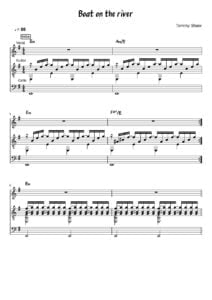 |
|
| Tomorrow (Europe) | ||
| Tomorrow (From Annie) Sheet Music – Charles Strouse |
 |
|
| Tomorrowland Music From The Motion Picture Soundtrack Piano Solo by Michael Giacchini |
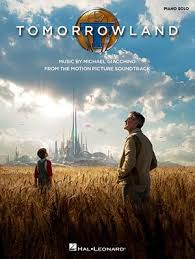 |
Tomorrowland Music From The Motion Picture Soundtrack Piano Solo by Michael Giacchini |
| Tomoya Naka Rainy Song | Tomoya | |
| Tonari no Totoro – My Neighbor Totoro (Joe Hisaishi) |
 |
|
| Toni Braxton – Unbreak My Heart | ||
| Tonight from West Side Story (Leonard Bernstein) Easy Piano Solo arr. sheet music | Tonight from West Side Story (Leonard Bernstein) Easy Piano Solo arr. sheet music | |
| Tonight From West Side Story (Leonard Bernstein) Easy Piano Solo Arr. Sheet Music (Musescore File).mscz | ||
| Tony Alonso Mass Of Joy And Peace For Sab Voices And Accompaniement |
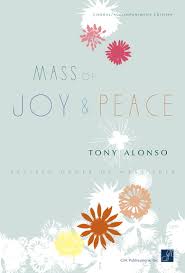 |
|
| Tony Bennett Life Is a Gift The Zen of Tony Bennett (Book) |
 |
|
| Top 10 22 Pop Hits Piano Vocal Guitar Chords |
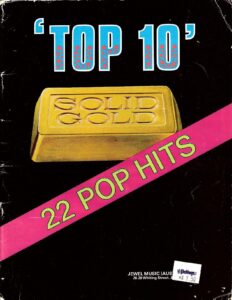 |
Top 10 22 Pop Hits Piano Vocal Guitar Chords |
| Top 10 Classical Favorites |
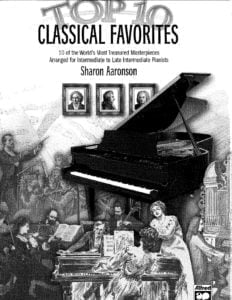 |
Top 10 Classical Favorites |
| Top Christian Hits Of 2019 2020 Piano Vocal Guitar 20 Powerful Songs |
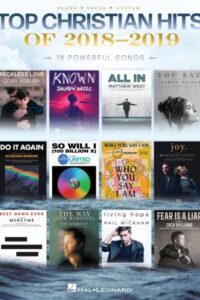 |
Top Christian Hits Of 2019 2020 Piano Vocal Guitar 20 Powerful Songs |
| Top Hits For Piano Solo 20 Great Songs |
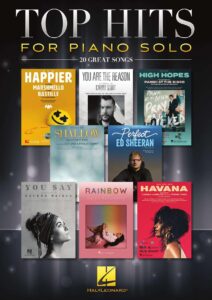 |
Top Hits For Piano Solo 20 Great Songs |
| Top Hits Of 2011 |
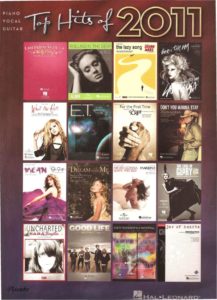 |
TOP HITS 2011 |
| Top Hits Of 2013 |
 |
Top Hits Of 2013 |
| Top Hits Of 2017 Sheet Music 18 great songs Piano Vocal Guitar |
 |
Top Hits Of 2017 Sheet Music 18 great songs Piano Vocal Guitar |
| Top Hits of 2018 Songbook – sheet music |
 |
Top Hits of 2018 Songbook – sheet music |
| Top Movie Hits SongBook |
 |
Top Movie Hits SongBook |
| Top Rock Volume 2 (Guitar) |
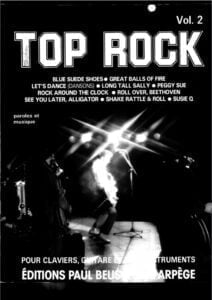 |
Top Rock songbook guitar |
| TOP TEN – N°1 |
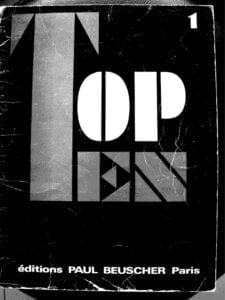 |
TOP TEN – N°1 |
| Top Ten – N°2 |
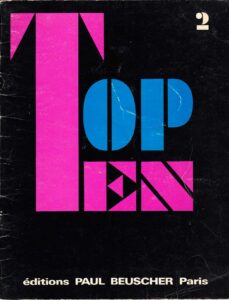 |
Top Ten – N°2 |
| Top Ten 40 (Guitar) |
 |
Top ten 40 guitar songbook |
| Top Ten 43 (Guitar) |
 |
Topp ten 43 guitar songbook |
| Top Ten Slow (Guitar) |
 |
Top Ten Slow (Guitar) |
| TOP TEN X3 (5) Guitar piano |
 |
TOP TEN X3 (5) Guitar piano |
| Toquinho – A Arte Brasilera de – sheet music songbook Guitar Tabs |
 |
Toquinho – A Arte Brasilera de – sheet music sogbook Guitar Tabs |
| Toquinho – Aquarela Guitar with TABs |
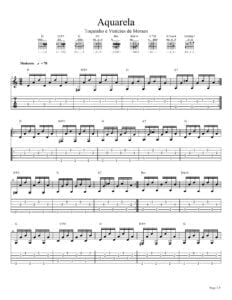 |
|
| Tori Amos – Silent All These Years | ||
| Tori Kelly Paper Hearts Piano |
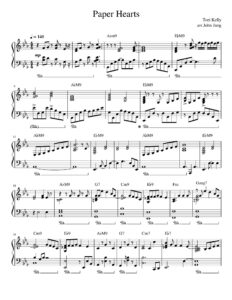 |
|
| Torna A Surriento Traditional Neapolitan Song By Ernesto De Curtis (Easy Piano Solo With Lyrics In English) |
 |
|
| Torna a Surriento.mscz | ||
| Toshifumi Hinata End Title (Tokyo Love Story) |
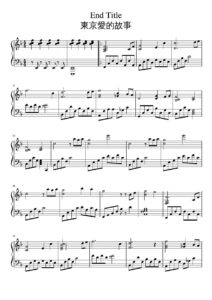 |
|
| Toshihiko Sahashi Fuuki Iinchou Hibari Kyoya | Toshihiko Sahashi Fuuki Iinchou Hibari Kyoya | |
| Toshihiko Sahashi Katekyo Hitman Reborn Hibari Kyoyas Theme | Toshihiko Sahashi Katekyo Hitman Reborn Hibari Kyoyas Theme | |
| Toshihiko Sahashi Tsuna Awakens Ost Katekyo Hitman Reborn |
 Toshihiko Sahashi Tsuna Awakens Ost Katekyo Hitman Reborn
Toshihiko Sahashi Tsuna Awakens Ost Katekyo Hitman Reborn |
|
| Total Guitar – The ultimate scale book |
 |
|
| Toto Guitar Anthology Authentic Guitar Tab |
 |
Toto Guitar Anthology Authentic |
| Toto – Africa (Easy Piano Solo Arr. Sheet Music) | Toto – Africa (Easy Piano Solo Arr. Sheet Music) | |
| Toto – Africa (Intermediate Piano Solo arr.) | Toto – Africa | |
| Toto – Childs Anthem (Intermediare Piano Solo arr.) | Toto – Childs Anthem (Intermediate Piano Solo arr) | |
| Toto – The Best Of Toto (Guitar, Kbds, Bass, Drum, Vocal) | Toto – The Best Of Toto (Guitar, Kbds, Bass, Drum, Vocal) | |
| Tournemire op. 33 Po me Mystique | ||
| TOY STORY – Randy Newman – You’ve Got A Friend In Me |
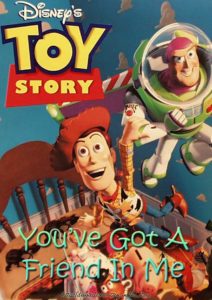 |
|
| Toy Story – When She Loved Me – Sarah Mclachlan | ||
| Toy Story Easy Piano Collection (Songbook) 8 Songs From The Popular Movies |
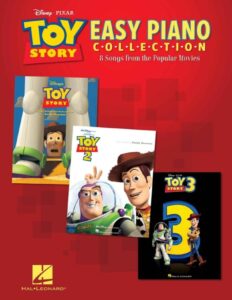 |
Toy Story Easy Piano Collection (Songbook) 8 Songs From The Popular Movies |
| Tracy Chapman – Complete Songbook |
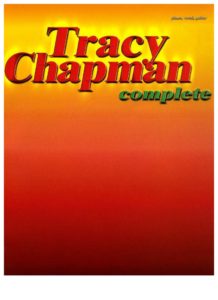 |
Tracy Chapman – Complete Songbook |
| Tracy Chapman – Tracy Chapman music songbook |
 |
Tracy Chapman – Tracy Chapman music songbook |
| Tracy Chapman Fast Car Sheet Music |
 |
|
| Traditional – Swing Low Sweet Charriot | Traditional – Swing Low Sweet Charriot | |
| Traditional Dona Nobis Pacem (Piano Solo Arr.) Give Us Peace Musescore File.mscz | ||
| Traditional English Carol – The First Noel | Traditional English Carol – The First Noel | |
| Traditional English Carol The First Noël (Piano Solo).mscz | ||
| Trailer Park The Musical Piano Vocal Score by David Nehls and Betsy Kelso |
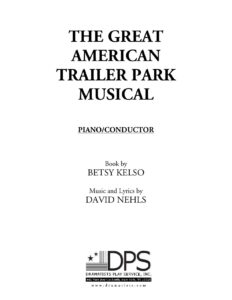 |
|
| Train – Drops Of Jupiter | ||
| Transparent Theme (Solo Piano) (Musescore File).mscz | ||
| Tratado de Armonia – Arnold Schoenberg (Spanish-Español) | Book Theory | |
| Travelin Soldier – Dixie Chicks | ||
| Trepat , Carles – Homenaje A Baden Powel |
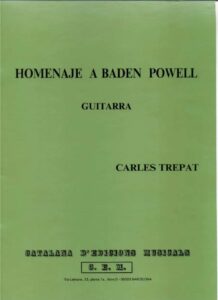 |
|
| Trepat, Carles Nana De Sevilla Partitura (Guitar, Guitarra) |
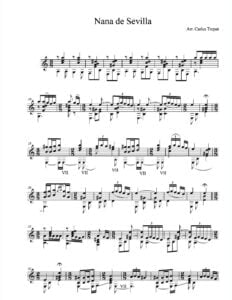 |
|
| Trinity – Pop and Rock Guitar Grade 1 Contemporary & Classic songs with TABs |
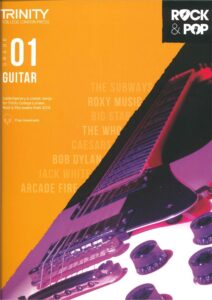 |
Trinity – Pop and Rock Guitar Grade 1 Contemporary & Classic songs |
| Trinity – Pop and Rock Guitar Grade 2 Contemporary & Classic songs with TABs |
 |
Trinity – Pop and Rock Guitar Grade 2 Contemporary & Classic songs |
| Trinity – Pop and Rock Guitar Grade 3 Contemporary & Classic songs with TABs |
 |
Trinity – Pop and Rock Guitar Grade 3 Contemporary & Classic songs |
| Trinity – Pop and Rock Guitar Grade 4 Contemporary & Classic songs with TABs |
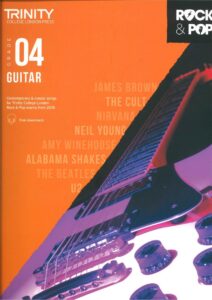 |
Trinity – Pop and Rock Guitar Grade 4 Contemporary & Classic songs |
| Trinity 2010-2015 Guitar Grade 3 Pieces & Exercises |
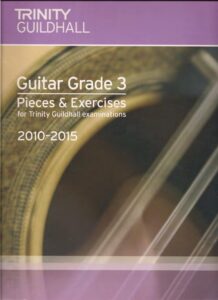 |
|
| Trinity Classical Guitar 2010-2015 Grade 07 |
 |
|
| Trinity Classical Guitar 2020-2023 Grade 01 |
 |
|
| Trinity Classical Guitar 2020-2023 Grade 02 |
 |
|
| Trinity Classical Guitar 2020-2023 Grade 03 |
 |
|
| Trinity Classical Guitar 2020-2023 Grade 04 |
 |
|
| Trinity Classical Guitar 2020-2023 Grade 05 |
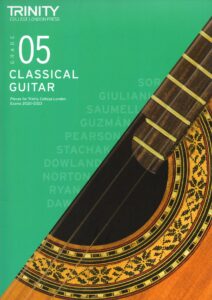 |
|
| Trinity Classical Guitar 2020-2023 Grade 06 |
 |
|
| Trinity Classical Guitar 2020-2023 Grade 08 |
 |
